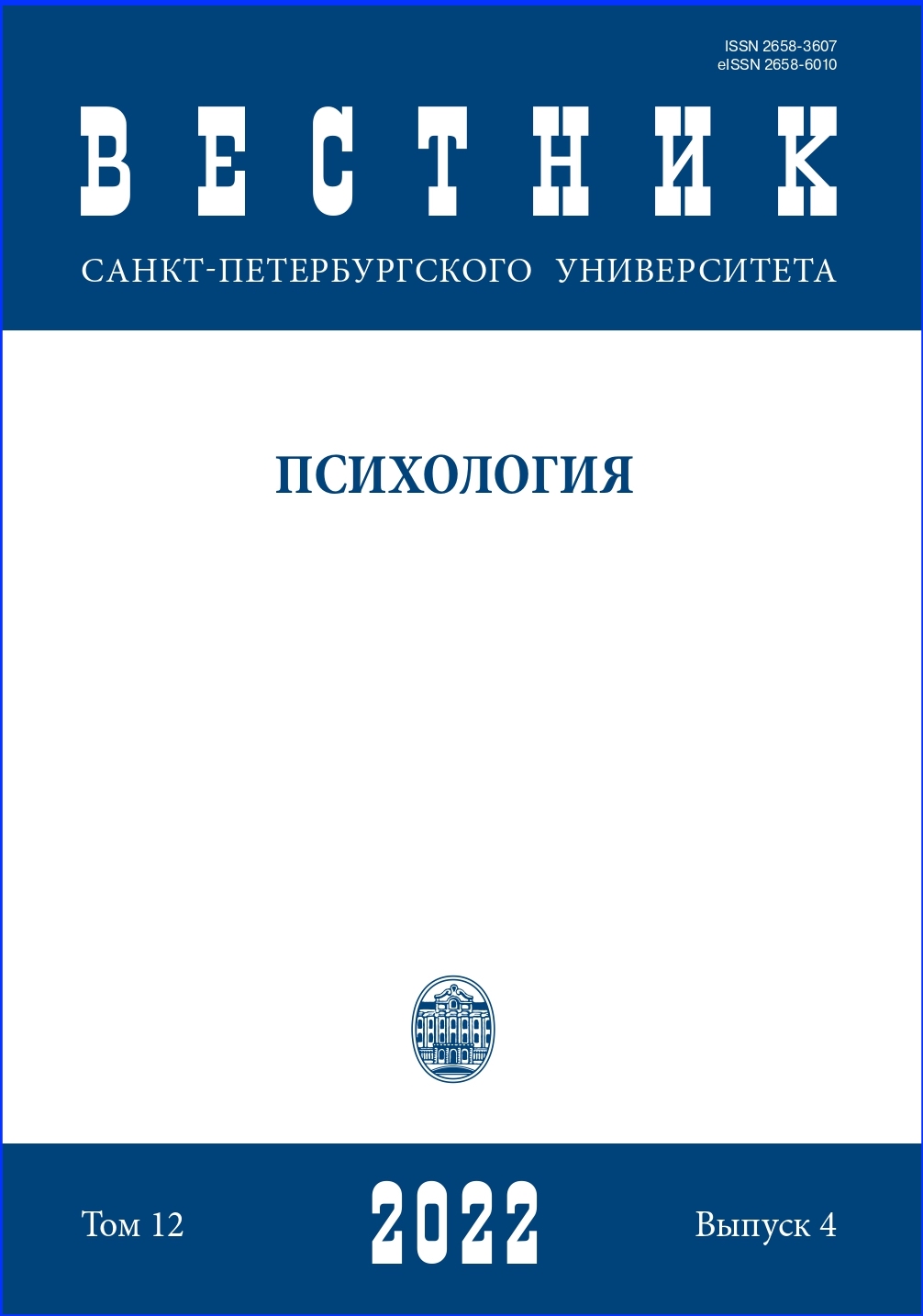Multi-level health indicators as predictors of students’ subjective well-being experience
DOI:
https://doi.org/10.21638/spbu16.2022.405Abstract
The subjective well-being as an integral experience of health state is a multidimensional phenomenon. The intrapersonal, social and environmental levels of subjective well-being were distinguished. The aim of the study was to determine predictors of subjective well-being of students. 850 students of different courses of St Petersburg and Novosibirsk universities took part in the study. The screening techniques MHC-SF (C.Keyes) and test of resilience (D.Leont’ev and E.Rasskazova), Scale of subjective well-being (C.Ryff), Measuring of prosocial tendencies (G.Carlo and B.A.Randall, adaptation of N.Kukhtova), Measuring of attitude to significant life situations (E.Korjova, A.Berdnikova), Scale of depression PHQ-9 and Scale of anxiety GAD-7 (Patient Health Questionnaire) were used. The results showed that students with a high level of subjective well-being rated all levels of health significantly higher than students with a low level of subjective well-being. The greatest influence on the subjective wellbeing is exerted by intrapersonal (endopsychic) predictors — resilience (β=0.322; p=0.000) and the presence of a goal in life (β=0.176; p=0.000). To a lesser extent, exopsychic predictors have an impact — attitude to a significant life situation and prosocial orientation, as well as self-assessment of mental health and presence of depression. The greatest contribution to the subjective well-being of intrapersonal characteristics confirms the leading role of personality in regulating the relationship between human and world. The data obtained make it possible to build a hierarchy of significant health resources for working out different health-saving programs.
Keywords:
predictors of subjective well-being, health levels, students, self-assessment of health, depression, resilience, purpose in life, prosocial orientation, attitude to life situation
Downloads
References
References
Downloads
Published
How to Cite
Issue
Section
License
Articles of "Vestnik of Saint Petersburg University. Psychology" are open access distributed under the terms of the License Agreement with Saint Petersburg State University, which permits to the authors unrestricted distribution and self-archiving free of charge.




